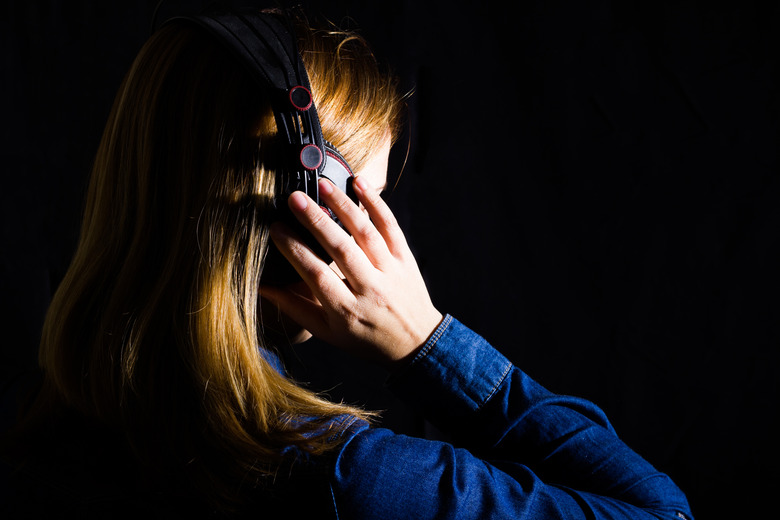What Is ASMR (And Does It Really Work?)
If you've checked out YouTube in, oh, the past several years, chances are you've come across ASMR. You know the videos – creators whispering into the mic for minutes on end, creating soothing sound effects using props or even chewing crunchy pickles on mic.
They're all designed to trigger the same response: soothing "brain tingles" that help the viewer relax, ease anxiety or even fall asleep. Those brain tingles are dubbed the "autonomous sensory meridian response" (ASMR), and they've been an internet phenomenon for years.
Recently, though, ASMR has moved from a niche online interest to a real field of study – and so far, the research suggests that it might actually have legit health benefits. Here's what you need to know.
First, What Does ASMR Feel Like?
First, What Does ASMR Feel Like?
If you've watched a few ASMR videos and never felt anything, well, you aren't alone. While researchers are still looking into how ASMR works, we do know that people tend to only experience brain tingles in response to certain stimuli. So if you're a "tinglehead" for whispering videos, that doesn't mean the pickle-crunching videos will have the same effect. And, of course, if you don't have any ASMR triggers, you might never experience brain tingles at all.
People who do feel the tingles, though, report that ASMR makes them feel warm and relaxed. The ASMR tingles start at the crown of your head then work downwards, helping you feel calm and relaxed.
How Your Brain Connects Sounds to Sensations
How Your Brain Connects Sounds to Sensations
While ASMR is still a new topic of research, scientists have known for a long time that what you hear affects how you feel. Take music, for instance. Research has shown that listening to music triggers the release of a brain hormone called dopamine – the same "feel-good" hormone that's released when you eat your favorite food or fall in love. We even know that the dopamine release from listening to music can have other effects on your body, like your heart rate, breathing rate and temperature.
In other words, it's no surprise that what you hear can trigger physiological changes that make you feel something – which is essentially the basis of ASMR.
The Science Behind ASMR
The Science Behind ASMR
When it comes to solid evidence that ASMR works, though, the research is still pretty thin. As the New York Times points out, many of the peer-reviewed studies on the benefits of ASMR were published in author-pay journals.
One recent study, though, published by researchers at the University of Sheffield in England, shows promise. The design of the study was simple: The researchers rounded up two groups of people – one group that said they experienced ASMR, and one group that didn't – and studied their physiological response to watching ASMR videos.
Surprisingly, the people who said they experienced ASMR did see a real benefit after watching the ASMR videos. The researchers observed that their heart rate decreased (it went down by about 3 beats per minute). And the study subjects reported feeling more relaxed and socially connected. The people who said they didn't experience ASMR, though, didn't experience those benefits.
So, Does that Mean ASMR Really Works?
So, Does that Mean ASMR Really Works?
Maybe! As the authors of the paper point out, the relaxation benefits of ASMR observed in their study are similar to the benefits of listening to music or practicing mindfulness – in other words, things we know have a beneficial effect on your mood and health.
But it's still way too early to say if ASMR truly has benefits beyond its ability to help some people relax – and what, exactly, causes the "brain tingles" that some listeners describe. Plus, the research into ASMR so far has been limited, and some of it is of potentially dubious quality.
So stay skeptical. But if you get the tingles and feel calmer after watching ASMR, enjoy it!
Read more: 4 Ways to Tell if Health Reporting Might Be Fake News
References
- ScienceDaily: Musical chills: Why they give us thrills
- New York Times: How A.S.M.R. Became a Sensation
- International Journal of School & Educational Psychology: Autonomous sensory meridian response (ASMR) and frisson: Mindfully induced sensory phenomena that promote happiness
- Smithsonian Magazine: How Researchers Are Beginning to Gently Probe the Science Behind ASMR
Cite This Article
MLA
Tremblay, Sylvie. "What Is ASMR (And Does It Really Work?)" sciencing.com, https://www.sciencing.com/what-is-asmr-and-does-it-really-work-13718297/. 15 April 2019.
APA
Tremblay, Sylvie. (2019, April 15). What Is ASMR (And Does It Really Work?). sciencing.com. Retrieved from https://www.sciencing.com/what-is-asmr-and-does-it-really-work-13718297/
Chicago
Tremblay, Sylvie. What Is ASMR (And Does It Really Work?) last modified March 24, 2022. https://www.sciencing.com/what-is-asmr-and-does-it-really-work-13718297/
